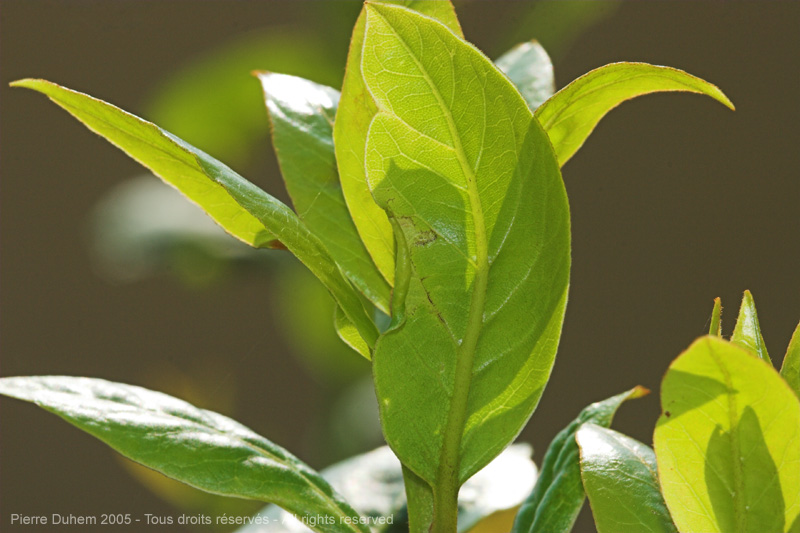

Trioza alacris (Bay sucker)

In Sossano (Italy, Vicenza region), a hedge of bay trees, owing to the sun
and to the humidity, produced young sprouts which attracted numerous insects...
Click below on the thumbnails to display a bigger picture.
Click again on the picture to come back here.
Click again on the picture to come back here.
The young and tender leaves, after a few hours only, curled like above and on the right.
I had initially thought that those so-called "cigars" could have been caused by some leaf-roll aphids, well known on the peach tree, amongst others. Anyway, ants were there, probably attracted by the honeydew...
This time, ants behaved rather "nervously" and seemed "frustrated" because they could not reach into the rolled leaf.
A search on the Internet brought the explanation. The cause of all this is a kind of psyllid, member of the Triozidae familly. Trioza alacris feeds on the bay or laurel (Laurus nobilis) and sucks sap from the young leaves, moving right and left in a way which makes it very difficult to photograph.
Since this insect makes many gardeners unhappy, numerous Web pages are published on it, like the one of the Royal Horticultural Society. The adult bay sucker lays eggs under those curled leaves.
Nymphs also feed sucking sap from the leaves and produce honeydew (which explains the presence of the ants, see above).
Those young sprouts of the bay don't attract only psyllids...
Those young sprouts of the bay don't attract only psyllids...
Due to the warm and humid climate, I could also observe scales and I could have done many other observations, but the gardener insisted on pruning the hedge almost every week...
All pictures taken in July-August 2005.
All rights reserved.
Last update: February 2023
Questions and comments are welcome.
Back to the Feature Gallery
All rights reserved.
Last update: February 2023
Questions and comments are welcome.
Back to the Feature Gallery








